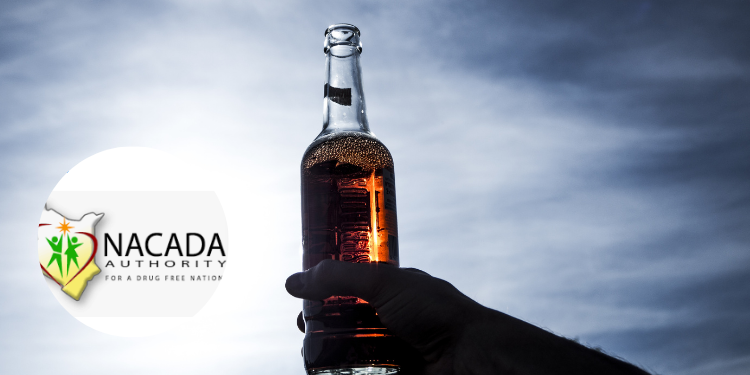The National Authority for the Campaign Against Alcohol and Drug Abuse (NACADA) has raised the minimum legal age for purchasing, handling, consuming, and selling alcohol in Kenya from 18 to 21 years.
The move is part of a sweeping set of reforms introduced on July 30, 2025, in the National Policy for the Prevention, Management, and Control of Alcohol, Drugs & Substance Abuse.
This policy is the culmination of an extensive, inclusive, and collaborative effort involving diverse stakeholders across Kenya—including national and county governments, civil society, faith-based groups, the private sector, and the general public.
Together, they have forged a unified strategy aimed at preventing, mitigating, and controlling the devastating impact of alcohol, drug, and substance abuse in the country.
“This policy serves as our strategic blueprint for coordinating all stakeholders, especially county governments, in the fight against alcohol and drug abuse. It establishes a united front to combat this escalating crisis, particularly safeguarding our children, youth, and women, whose vulnerability directly threatens Kenya’s future productivity and development,” said Interior Cabinet Secretary Kipchumba Murkomen.
New measures introduced by NACADA in fight against alcohol and substance abuse
The new age restriction is one of many wide-reaching measures intended to curb access and availability of alcohol, especially among vulnerable populations. NACADA has also prohibited the sale and consumption of alcohol in several public and sensitive spaces.
These include public beaches, parks, recreational and medical facilities, sports venues, bus parks and stops, railway and ferry stations, petrol stations, highways, restaurants, clubs, and all institutions of learning from basic to tertiary level.
In addition, the use of vending machines, online sales, home deliveries, hawking, supermarkets, and outlets associated with children- such as toy shops—have all been banned from distributing alcohol.
Any individual below the age of 21 is barred from accessing or entering alcohol-selling premises, whether alone or accompanied.
To tighten enforcement, the government has outlawed price promotions such as discounts, free alcohol offers, flat rates for unlimited drinking, and volume-based sales. Alcoholic packaging and labelling will now be regulated, with a minimum packaging size of 250ml and mandatory inclusion of health warnings and ingredient listings.
Further, licensing of alcohol outlets will be subject to stricter conditions. Retail and wholesale alcohol sellers must not operate within 300 metres of any educational institution, and their hours will be regulated.
Control of advertising, promotion and marketing
To protect children, youth and the public from excessive, misleading, or deceptive inducements of alcohol advertising, promotion, and marketing, NACADA has announced that any person used in advertising or endorsing alcoholic drinks shall be above 25 years.
There shall be no promotion of alcoholic drinks by use of materials that are associated with persons under the age of 21 years.
Also, there shall be no use of entertainment, sports personalities, media personalities and models, social media influencers, or celebrities in endorsing, promoting and advertising alcoholic drinks, drugs and substances, and further, there shall be no lifestyle advertising through any form of advertisement or promotion.
A manufacturer, importer, distributor, wholesaler, retailer or any related agent of alcoholic drinks shall not name or brand a sports team by the name of an alcoholic drink’s product; and sponsor or brand a sports league, tournament or a national team.
Advertising via audio-visual platforms between 5.00 a.m. -10.00 p.m. (watershed hours) (including broadcast originating outside Kenya) shall also be banned.
Supermarkets and franchise stores targeted
Retail licenses for supermarkets and franchise stores will no longer be issued. Tax compliance will be mandatory, and licenses will be reviewed to control the types of alcoholic drinks that outlets are allowed to sell.
Also Read: NACADA Bans Sale of Alcohol in Supermarkets and Other Key Areas (FULL LIST)
To address accountability, NACADA emphasized that no public officer at either the national or county level may own or operate an alcohol-selling outlet directly or through proxies.
Moreover, licensing of alcohol manufacturing, importation, and exportation will now fall under the purview of the National Government. Distribution must occur between 6:00 a.m. and 6:00 p.m., using licensed and branded vehicles.
The policy also outlines major reforms around events and parenting. The sale and consumption of alcohol in the presence of children or during child-focused events—such as festivals, parties, or sports—has been outlawed.
Similarly, individuals carrying offensive weapons will not be allowed to consume alcohol in any outlet.
A framework has been developed to enhance responsible serving practices in entertainment venues. Additionally, county governments are now required to set up institutional frameworks for licensing alcohol sales that include local community participation, a multi-agency approach, compliance with national standards, and insulation from alcohol industry influence.

Drink-driving countermeasures
The policy introduces tough drink-driving countermeasures, including a reviewed upper blood alcohol concentration limit with even lower thresholds for professional and novice drivers.
Sobriety checkpoints, random breath-testing, license suspensions, and mandatory counselling and treatment programs will also be adopted.
On the pricing and taxation front, Kenya will move to a progressive tax system based on alcohol content, combined with minimum unit pricing to deter excessive consumption. Incentives, subsidies, and promotions encouraging alcohol production and sales will be prohibited.
Also Read: Bets, Blunts, and Broken Dreams: Gen Z’s Struggle with Substance Abuse in Urban Kenya
To ensure product quality and safety, manufacturers must adhere to national production, storage, importation, and distribution standards. Informal and traditional alcohol production will be brought into the regulatory framework.
All industry stakeholders—including importers and retailers—will be required to establish systems for the retrieval and proper disposal of packaging materials such as bottles, cans, and caps.
Lastly, the policy will strengthen regulation around emerging substances of abuse, including nicotine delivery systems, and increase control over the availability of psychoactive medicines.
Alcohol and substance abuse statistics
A national survey by NACADA, the Kenya National Bureau of Statistics (KNBS), and the Tobacco Control Board has revealed worrying substance abuse trends in Kenya, with children as young as 6 initiating tobacco use.
Alcohol, cannabis, tobacco, and prescription drugs are being used at increasingly younger ages. The study found that 1 in 6 Kenyans aged 15–65 uses drugs, with alcohol (3.2M users) and tobacco (2.3M) leading.
Cannabis use has risen by 90% in five years. Alarmingly, 42.4% of alcohol users, 38.8% of tobacco users, and 47.4% of cannabis users are addicted, underscoring the urgent need for more treatment and rehabilitation services.
Drug and substance abuse is significantly more prevalent among Kenyan youth than the general population. Among those aged 15–24, 1 in 11 is using at least one substance, with alcohol, tobacco, and cannabis being the most common.
Polydrug use affects 1 in 26 in this group. Among 25–35-year-olds, the situation is worse as 1 in 5 is using at least one drug. Additionally, nearly half a million engage in multiple substance use.
Alcohol remains the most abused across both age groups, followed by tobacco and cannabis, pointing to an escalating public health crisis among the country’s young population.
Follow our WhatsApp Channel and X Account for real-time news updates.








































































